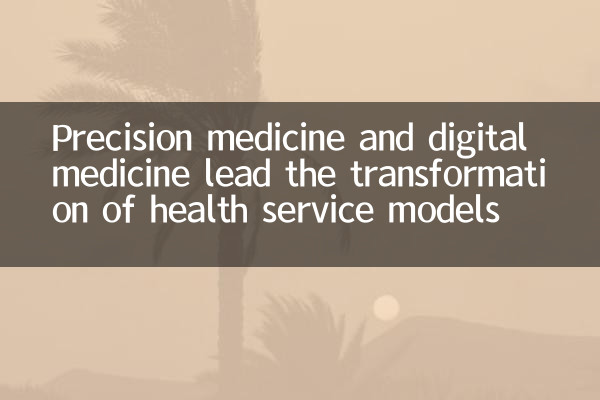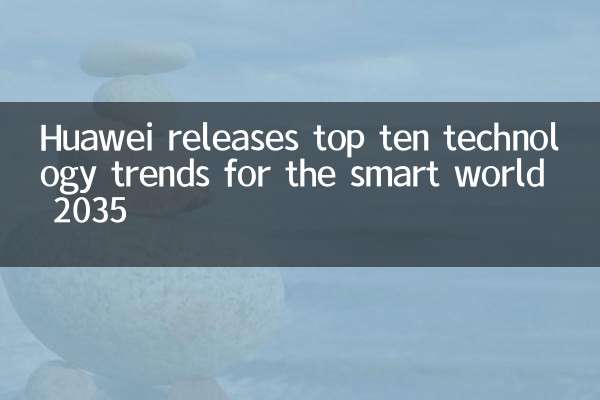Precision medicine and digital medicine lead the transformation of health service models
In recent years, with the rapid development of technology, precision medicine and digital medicine are gradually changing the traditional health service model and becoming a new trend in the medical industry. The following is a summary of popular topics and hot content on the entire network in the past 10 days. Combined with structured data, we will explore the core direction of this change.
1. Breakthrough progress in precision medicine

Precision medicine provides patients with personalized treatment plans through technologies such as gene sequencing and big data analysis. In the past 10 days, the following areas have become hot topics:
| field | Hot content | Attention (index) |
|---|---|---|
| Cancer treatment | New indications for CAR-T cell therapy are approved | 95 |
| Gene Editing | CRISPR technology makes breakthroughs in the treatment of rare diseases | 88 |
| Infectious disease prevention and control | AI-based virus mutation prediction model is online | 82 |
It can be seen from the table that cancer treatment and gene editing technology are the most concerned directions in the field of precision medicine, and the prevention and control of infectious diseases continue to trigger discussions due to the normalization of the global epidemic.
2. Popularization and application of digital medical care
Digital medical care achieves the optimal allocation of medical resources through Internet, Internet of Things and other technologies. The following are the hot topics in the past 10 days:
| Application scenarios | Typical cases | User growth (percentage) |
|---|---|---|
| Remote consultation | A platform's daily consultation volume exceeded 1 million times | 15% |
| Health monitoring | Smart bracelet adds blood pressure monitoring function | 12% |
| Electronic medical record | The pilot program of electronic medical record interoperability in Grade A hospitals has started | 8% |
Remote consultation and health monitoring are the fastest growing areas of digital health care, reflecting the growing demand for convenient medical services from users.
3. Change direction of health service model
The integration of precision medicine and digital medicine is promoting the transformation of health service model from "disease-centered" to "health-centered". Here are three possible directions of change in the future:
1.Personalized health management: Provide users with customized health advice through genetic testing and health data analysis.
2.Enhancement of preventive medicine: Use AI to predict disease risks, intervene in advance, and reduce medical costs.
3.Medical resources sink: Digital medical technology allows high-quality medical resources to cover a wider range and alleviates urban-rural gap.
4. Challenges and opportunities coexist
Despite the broad prospects of precision medicine and digital medicine, it still faces challenges such as data security, technical barriers and ethical issues. The following are the hot topics of related discussions in the past 10 days:
| Challenge Type | Specific questions | Discussion popularity (index) |
|---|---|---|
| Data security | Medical data breaches frequently occur | 90 |
| Technical barriers | The digitalization level of primary medical institutions is insufficient | 75 |
| Ethical issues | Ethical controversy over gene editing technology | 80 |
Data security is the most concerned challenge at present, and technical barriers and ethical issues also need to be solved by the industry.
Conclusion
Precision medicine and digital medicine are reshaping the health service model and bringing users a more efficient and personalized medical experience. In the future, with the continuous advancement of technology and the improvement of policies, this change will profoundly affect the global medical and health industry.

check the details

check the details